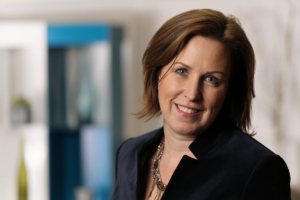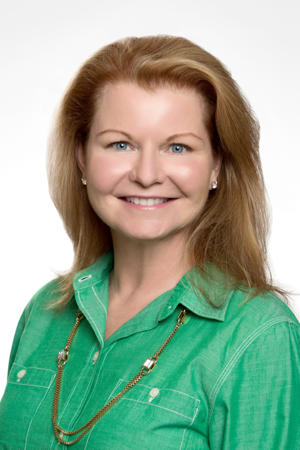 “Your career is a marathon not a sprint,” says Citi’s Leslie McNamara. “I spent my early years focusing on a vertical career path and how I could achieve the next level, but over the course of my career, I’ve learned it’s been the horizontal moves that expanded my horizons the most and helped me develop entirely new networks that have paid off.”
“Your career is a marathon not a sprint,” says Citi’s Leslie McNamara. “I spent my early years focusing on a vertical career path and how I could achieve the next level, but over the course of my career, I’ve learned it’s been the horizontal moves that expanded my horizons the most and helped me develop entirely new networks that have paid off.”
McNamara has been in her current role since 2011, providing strategic direction and oversight for Citi Retail Services’ private label and co-brand credit card programs. She has spent the past 30 years either in or serving financial institutions in consumer lending business lines.
Early on she heard the career advice to “follow the money,” and she took it to heart, aligning herself with revenue-producing P and L management roles, with work that has been rooted in relationship management. In her current role she works closely with Citi Retail Services’ “partners” — the retailers the business represents. This requires a clear understanding of what drives sales for retailers and how credit programs contribute to the bottom line.
Despite earning impressive career wins, McNamara always focuses on her future potential and what she will deliver to the business. “I prefer to look through the windshield rather than in the rear view mirror,” she says, adding that there are two times professionals should reflect on their past: when translating experiences to qualifications for new roles and when self-assessing at the end of the year. Even then, she feels that while annual reviews might incorporate a retrospective, the summary should focus on how you will apply what you’ve done to your next stage. “Your biggest career achievement should be what you are going to do next week or next month and not what you’ve done in the past,” she says.
Using Research to Benefit Retail Partners
Currently, McNamara is enjoying her involvement with a series of projects and initiatives supporting the engagement of millennials in the business. One particular project involves collaborating with the human resources group to define best practices around proactively hiring and creating an environment that nurtures millennials and shows them the fulfilling career paths available at Citi.
And, she is sponsoring a complementary project with students from the University of Arizona’s Terry J. Lundgren Center for Retailing that mines Citi data and solicits insights into how millennials are thinking about shopping and how they differ from previous generations. Among the findings have been that millennials might be a little delayed in their spend behaviors but ultimately look similar to previous generations.
“Citi Retail Services has a vast repository of information and ancillary data sources that allow us to be uniquely positioned to probe to find patterns. Our goal is to provide this value to our retailer partners. We want to help them supplement their own research and understand trends in the future of retail and how our business can capitalize on them.”
Other findings include that the economy has fundamentally changed since the Great Recession, including not only enormous shifts in the regulatory environment but also generational thinking about relationships with credit.
“There’s a new face to U.S. consumerism based on where we buy and how we pay,” she says, “and we have to understand spending trends and the future of retail, including issues the credit industry will face as we work to help our retailer partners be successful with strategies that address loyalty and media placement, for example.”
The Shift in Role Models
When McNamara began her career, there was a dearth of female role models. “I wasn’t able to see others who had successful career patterns, but I’ve seen a big shift in the past five to 10 years, both within Citi and throughout the industry.” Now she says she sees women who head up businesses and hold significant titles. “I can envision that success for myself, and I know that other generations can see it too. There has been a significant shift in the pipeline toward a more equitabledistribution of candidates.”
She suggests that young women starting their careers need to be more willing to take risks and display more confidence in their abilities. And she believes that women at her level need to continue to focus on advocacy and pulling others through.
One caveat she has for millennial women starting out is that they come from a different perspective where their surroundings have been more equitable and they haven’t been exposed to noticeable gender differences. However, as they join a multi-generational workplace, they might be surprised to find a different mindset and realize that it is still important to make connections with women’s networks or diversity networks. “Younger women need to understand how to navigate workplaces that might not reflect their previous experiences with gender parity.”
McNamara has been active in Citi’s programs for women at various points in her career with the company. Early on, she participated in the Women Leading Citi program when it was just forming and has seen firsthand its value in networking and opportunities among graduates. “The mentoring and advisory components have been very powerful to me, and I have also benefitted from seeing other women I’ve sponsored and mentored succeed.” Motivated by the company’s efforts, she recently became executive sponsor for the local Citi Women’s network at her site in Wilmington.
Diva Worthy
McNamara readily acknowledges her husband, whom she calls her “life partner,” chose to be a work at home dad to help support her travel schedule. “I simply couldn’t have had this career path without him,” she says. She has a 20-year-old son, an Eagle Scout who is currently a junior at High Point University. “He frequently reminds me that everything I encounter is a first-world problem,” she says with a laugh.
And, she just enjoyed one of the highlights of her year: the annual “Diva Weekend,” which includes a cadre of women who have worked together over the years. The multi-generational group is composed of different life stages, from a newlywed to a couple of grandmas. “This long weekend is the perfect combination of personal and professional advice, food and fun, and it is inspirational through and through.”

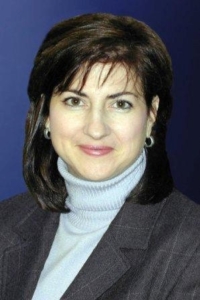
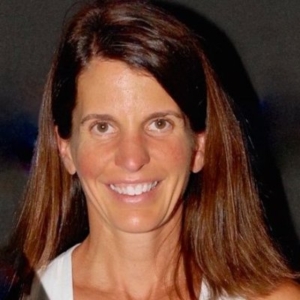 One of Tana Jackson’s greatest learning moments was when she realized there’s a limited to how much she could accomplish on her own. “It might seem faster to do things myself which was what I always fell back on rather than wanting to train someone else but I eventually learned that it is worth the investment to train team members,” she says. “When I finally figured that out, I morphed from being an individual contributor to a leader, and that’s when my title leaped from team leader to director to vice president.
One of Tana Jackson’s greatest learning moments was when she realized there’s a limited to how much she could accomplish on her own. “It might seem faster to do things myself which was what I always fell back on rather than wanting to train someone else but I eventually learned that it is worth the investment to train team members,” she says. “When I finally figured that out, I morphed from being an individual contributor to a leader, and that’s when my title leaped from team leader to director to vice president. 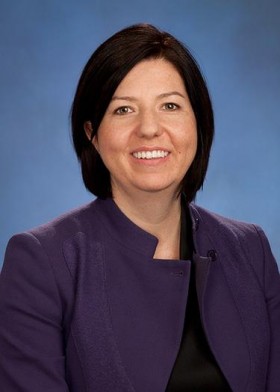 Recently Sinead Strain, who heads Goldman Sachs’ fixed income, currencies and commodities (FICC) technology, had the opportunity to share her career trajectory with young women who were visiting the firm as part of the Girls Who Code initiative.
Recently Sinead Strain, who heads Goldman Sachs’ fixed income, currencies and commodities (FICC) technology, had the opportunity to share her career trajectory with young women who were visiting the firm as part of the Girls Who Code initiative.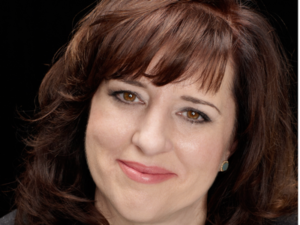 For Mary McDowell, the secret to a fulfilling career is finding a work environment that works for you. “You’re going to work a lot, and work hard. Make sure you choose a career path that you are passionate about and that you’re working with people who bring out your best. You are going to spend a lot of time with them and the more you like them, the better your experience will be. Life is too short to work with jerks.”
For Mary McDowell, the secret to a fulfilling career is finding a work environment that works for you. “You’re going to work a lot, and work hard. Make sure you choose a career path that you are passionate about and that you’re working with people who bring out your best. You are going to spend a lot of time with them and the more you like them, the better your experience will be. Life is too short to work with jerks.”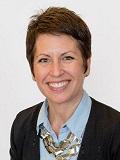 This simple, but powerful phrase has been the mantra of Lori Fellela, senior director at TIAA-CREF. “I’ve been fortunate throughout my career to have leaders who’ve given me feedback and the opportunity to take on more challenges, and part of that is because I have been the person who has stepped up and said ‘I’ll take it.’ It’s crucial to raise your hand and volunteer for the projects no one else wants, to get yourself outside of your comfort zone – that is how you’ll get to your next role,” says Fellela.
This simple, but powerful phrase has been the mantra of Lori Fellela, senior director at TIAA-CREF. “I’ve been fortunate throughout my career to have leaders who’ve given me feedback and the opportunity to take on more challenges, and part of that is because I have been the person who has stepped up and said ‘I’ll take it.’ It’s crucial to raise your hand and volunteer for the projects no one else wants, to get yourself outside of your comfort zone – that is how you’ll get to your next role,” says Fellela.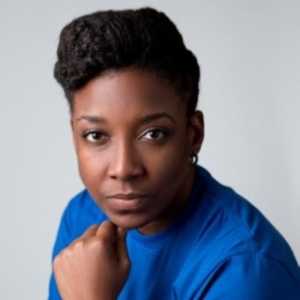
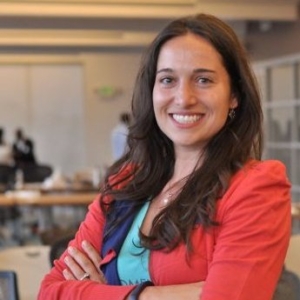
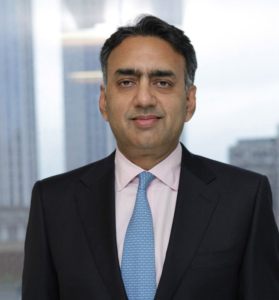 “If there’s a fundamental disconnect in the area of diversity, businesses will not have the outcomes they could, as there will be significant lapses in their performance,” says Citi’s Naveed Sultan. “That’s how important I believe this issue is, not only to me, but to our organization as a whole.”
“If there’s a fundamental disconnect in the area of diversity, businesses will not have the outcomes they could, as there will be significant lapses in their performance,” says Citi’s Naveed Sultan. “That’s how important I believe this issue is, not only to me, but to our organization as a whole.”